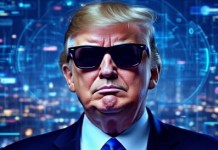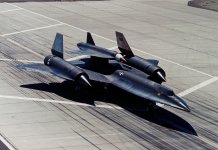Inaugurated as President soon after being declared the winner of South Korea’s Presidential election at 6:21 a.m. on June 3, (South Korea- time), Lee Jae-myung of the country’s progressive Democratic Party of Korea (DPK) has pledged to “expand the Republic of Korea’s economic territory by broadening the horizons of diplomacy and enhancing international standing”.
In all likelihood, his diplomatic vision will be closely watched by all those who believe in the United States-led security structure in the Indo-Pacific, particularly by the ruling elites in Taiwan and Japan, who seem to be discomforted by Lee’s slogan of “pragmatism.”
In his inaugural speech as President, Lee highlighted the salience of “pragmatic diplomacy centered on national interests” to “turn the crisis of a major transformation in the global economic and security environment into an opportunity to maximize national interests.”
He has reaffirmed his approach to relations with neighboring countries, including China and Russia, “from the perspective of national interest and pragmatism,” while emphasizing the Korea-US alliance as the cornerstone of foreign policy.
Perceived to be “pro-China” during the electioneering, Lee’s inaugural speech does not seem to have cleared doubts in Washington and Tokyo, despite promising that he would bolster a trilateral partnership with the US and Japan.
After all, he warned that rapid changes in the global order, including rising protectionism, pose a threat to his country’s survival.
“The rapid changes in the global order, such as rising protectionism and supply chain restructuring, pose a threat to our very survival,” Lee said in his inaugural address, in an apparent reference to the global trade chaos followed by US President Donald Trump’s sweeping tariffs.
If one goes by the more ideologically driven progressives within Lee’s ruling DPK, which also controls South Korea’s parliament, the new President may create a distance between Seoul and Washington, particularly if the Trump administration reduces its security commitment on the Korean Peninsula or pushes South Korea beyond its comfort zone to deter China.
Incidentally, Lee had made waves on the campaign trail by saying that Seoul should stay out of any China-Taiwan conflict. This needs to be seen along with the fact that earlier this year, the speaker of South Korea’s National Assembly – an ally of Lee’s – received an unusually warm welcome in Beijing, including an hour-long meeting with Xi Jinping.
Of course, to be fair to Lee, he has been advocating for “foreign policy pragmatism” ever since he was a presidential candidate in 2022. He had lost this election very narrowly to the conservative People Power Party’s Yoon Suk Yeol.
But in April, President Yoon Suk Yeol was impeached, after he declared a short-lived state of martial law in December 2024 because Lee’s DPK was making governance impossible by rejecting all his policies because of its parliamentary majority.
As the Presidential candidate in 2022, Lee had explained his “Practical Vision” in an article in the Foreign Affairs journal. In this, he had called for “pragmatic diplomacy” toward neighboring countries, including China.
Although Lee acknowledged Beijing’s increasing assertiveness, he argued that Seoul should cooperate with Beijing. Furthermore, Lee stated that “overt antagonism serves neither South Korea’s national interests nor its alliance with Washington.”
In the above article, Lee admitted his problems with Japan.
“It is regrettable that Tokyo’s unwillingness to let go of its imperial past continues to hamper trilateral cooperation between Japan, South Korea, and the United States”, he pointed out, arguing how in 2018, after South Korea’s Supreme Court ruled that Japanese corporations must pay reparations for their use of Korean forced labor during World War II. Tokyo imposed retaliatory export controls on three key chemicals—photoresists, hydrogen fluoride, and fluorinated polyimide—critical for making South Korea’s semiconductors and high-end displays used for televisions and smartphones. This was a shocking act of economic coercion to settle a historical grudge”.
It may be noted that relations between Japan and South Korea had seen an upswing during Yoon’s Presidency. And that was noteworthy because years under Yoon’s immediate predecessor, President Moon Jae-in (from Lee’s party) had nurtured anti-Japanese feelings.
Moon had scrapped the foundation that Tokyo and Seoul had set up with Japanese funding to provide restitution to the victims and their families. And the situation was further aggravated when, in 2018, South Korea’s Supreme Court ordered several Japanese companies to compensate unpaid South Korean World War II laborers.

Against this background, President Yoon had sincerely and actively tried to rise above these historical animosities and join hands together with Japan and the U.S. in the face of mounting North Korean aggressiveness and the Chinese hegemony, something all three consider to be their common threats.
Yoon had said that he believed in what he called “values-based diplomacy.”
Yoon often pointed out that “South Korea and Japan are now new partners who share universal values and pursue common interests.” He had emphasized the importance of Japan in South Korea’s security, particularly the seven rear bases provided to the United Nations Command by Japan, which could “serve as the greatest deterrent” to North Korea invading the South.
Under Yoon, South Korea has restored and expanded joint military drills (suspended under Moon to what was said “appease” China policy; he was believed to be the most pro-China President in South Korean history) and joined exercises with the US and Japan to track and intercept missiles from North Korea.
Yoon had proposed an initiative to resolve disputes stemming from compensation for wartime Korean forced laborers. He had announced that South Korea would use its own funds to compensate Koreans enslaved by Japanese companies before the end of World War II. This was reciprocated by Japan, which rolled back the sanctions on South Korea.
Yoon also traveled to Tokyo in March 2023 for talks with the then-Japanese Prime Minister Fumio Kishida. It was the first visit by a South Korean President to Japan in over 12 years. Kishida reciprocated with a visit to Seoul in May and expressed sympathy for the suffering of Korean forced laborers during Japan’s colonial rule.
Will Lee’s election as South Korea’s new President arrest the further momentum in the ties between Seoul and Tokyo, given his and his DPK’s traditional antipathy towards Japan?
It is a difficult question to answer. While Lee talks of “pragmatism,” during the electioneering, he said something that was considered by many analysts to be quite “ambiguous.”
On April 25, he clearly stated during a televised debate that South Korea must not be unconditionally tethered to the alliance or rigidly confined by the Korea–US–Japan trilateral bloc.
“Of course, the Korea–US alliance is indeed the foundation of the Republic of Korea’s foreign policy …but bloc alignments also carry weight. Trilateral cooperation among Korea, the US, and Japan is also important. But we cannot be unilaterally bound to those alone.”
In an interview released on the Roh Moo-hyun Foundation’s YouTube channel in mid-April, Lee argued that Seoul cannot afford to turn its back on either Beijing or Moscow in pursuit of its national interest, given their geographical proximity and deep economic entanglement.
“Even if we wanted to abandon ties with China and Russia, we couldn’t. We’re intertwined with them — what choice do we have?” Lee added, “Our economies are deeply intertwined with them, and geography makes separation impossible. It’s fate — our destiny.”
Lee emphasized the significance of navigating relations with China and Russia, especially at a time when a deteriorating global trade environment, hit by tariff wars, is weighing heavily on export-reliant South Korea.
During another television debate on May 18, Lee said, “We must prioritize the national interest and avoid becoming too deeply involved in the China-Taiwan conflict. The idea is to respect the status quo and maintain an appropriate distance.”
Pressed on whether he would support intervention in a potential China-Taiwan contingency, Lee declined to give a definitive answer, instead emphasizing a flexible, situational approach.
“If a specific situation arises, we must assess it flexibly, based on the national interest,” he said. “Diplomatic relations are fluid, and responses should vary accordingly.”
While reaffirming the importance of the South Korea–U.S. alliance, Lee said diplomacy with other major powers, such as China and Russia, should be handled in a prudent manner, saying it should be guided by “pragmatism” and the “national interest.”
In this interview, Lee acknowledged the importance of the South Korea-U.S. alliance and why it should remain “the foundation of our diplomacy and security, and be further strengthened,” but he added, and that is important to note, “however, we should not go all in and put all our eggs in one basket.”
If anything, these suggest that there could be a shift away from former President Yoon’s “values-based diplomacy” toward Lee’s foreign policy of pragmatism. However, it remains to be seen whether that pragmatism will be a turning point for the geopolitics of the Indo-Pacific.
- Author and veteran journalist Prakash Nanda is Chairman of the Editorial Board of the EurAsian Times and has been commenting on politics, foreign policy, and strategic affairs for nearly three decades. He is a former National Fellow of the Indian Council for Historical Research and a recipient of the Seoul Peace Prize Scholarship.
- VIEWS PERSONAL OF THE AUTHOR
- CONTACT: prakash.nanda (at) hotmail.com




